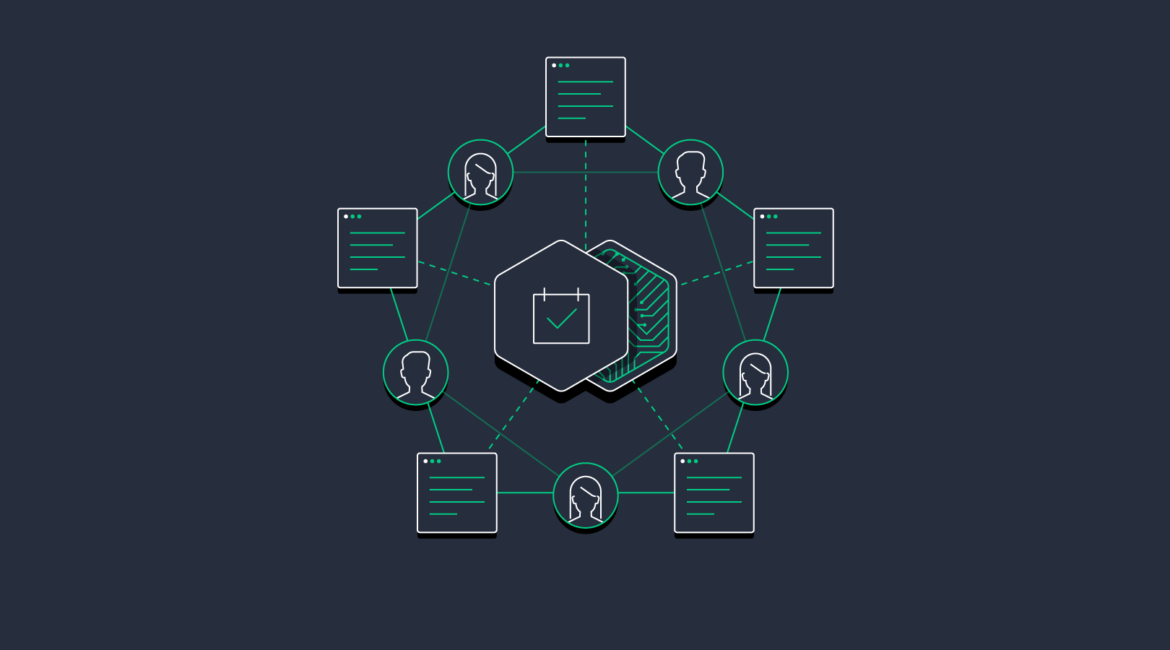Revolutionizing the Way We Plan and Execute Projects with AI
As Artificial Intelligence (AI) has taken the front seat in the digital transformation era, the impact its making on project management and execution is profound. Using AI in new ways offers enhanced efficiency, accuracy, and decision-making processes throughout the lifespan of a project. The idea is not to replace humans in the workplace but rather using it to transform challenges into opportunities for further innovation and success.
Integrating AI technologies can assist many of the operational aspects of project management because it can continuously monitor progress, providing real-time updates and alerts. This immediate feedback loop allows for quick course corrections, ensuring projects stay on track. It can analyze deliverables for quality and compliance, upholding high standards throughout the project lifecycle. Because of this capability, AI can aid in creating robust project plans by learning from past projects. It can suggest realistic timelines, budgets, and critical milestones, increasing the likelihood of project success. This aspect of AI is particularly beneficial for new project managers or those handling complex, multi-faceted projects.
There are many routine and redundant areas within a project that do not utilize people’s time to the best of their abilities. Automating activities like scheduling, sending updates, and managing project documentation can be efficiently handled by AI systems. This automation not only speeds up the process but also reduces the likelihood of human error, ensuring smoother project flows. This sort of risk management, along with other risk areas, is a critical aspect of project management, and AI brings a proactive approach to it. By analyzing historical data and current trends, AI can predict potential risks, allowing project managers to devise mitigation strategies well in advance. This foresight is crucial in navigating the uncertainties inherent in any project.
Lastly, one of the most significant contributions of AI in project management is its ability to process vast amounts of data to extract meaningful insights. With AI, project managers can now analyze complex data sets to forecast trends, identify risks, and make informed decisions. This predictive analytics capability is invaluable in crafting strategies that are both proactive and adaptive.
As we continue to witness the integration of AI in various aspects of business and operations, its role in project management is undeniable. Project managers who leverage AI tools and techniques can expect not only to enhance their existing processes but also to unlock new potential in project delivery and team dynamics. The key lies in understanding the capabilities of AI and effectively integrating them into the fabric of project management strategies.
Although not a replacement for human project managers, it is a powerful ally to complement their skills and expertise. As AI technology advances, its potential to refine and redefine project management will continue to grow. The future of project management, infused with AI, promises greater precision, efficiency, and success in meeting the ever-evolving challenges of projects in various industries.
Exciting new technological developments offer a wealth of opportunities for project managers to drive their projects forward with greater confidence and control. By embracing AI, project managers can navigate the complexities of their roles more effectively and lead their teams towards successful project completion with greater ease and precision. The journey of AI in project management is just beginning, and its full potential is yet to be fully realized.

